Greetings to the distinguished people of Rivers State. Welcome to another episode of RivEthics on Radio, our character-building weekend show. Please remember that no one must be left behind in the bid to achieve the Sustainable Development Goals. This episode is in commemoration of the United Nations World Braille Day that comes up on January 4 every year.
Before delving into the topic, I am delighted to announce the Chevening Alumni Association of Nigeria Essay Competition for undergraduate students in Nigerian public and private universities and in other tertiary institutions of learning. The Essay Topic is, “Alternative Narratives to Illegal Migration Amongst Young People in Nigeria.” An official release by the Association can be downloaded from the RivEthics website [HERE]
World Braille Day, celebrated since 2019, is observed to raise awareness of the importance of Braille as a means of communication in the full realization of the human rights for blind and partially sighted people. The pandemic has revealed how critically important it is to produce essential information in accessible formats, including in Braille and audible formats. Otherwise, many persons with disabilities could face a higher risk of contamination due to a lack of access to guidelines and precautions for the reduction of the spread of the pandemic.
Even under normal circumstances, persons with disabilities, like visual impairment, are less likely to access health care, education, employment and to participate in the community. They are more likely to live in poverty, experience higher rates of violence, neglect and abuse, and are among the most marginalized in any crisis-affected community.
World Braille Day is a reminder of the importance of accessibility and independence for those who are blind or visually-impaired. The reality is that many everyday establishments — restaurants, banks, hospitals — aren’t equipped with braille menus, statements or bills. That means people with blindness or a vision impairment aren’t given the freedom to choose or live like others with healthy vision.
World Braille Day spreads awareness about braille and other accessible forms of communication. Everyone deserves (and is legally entitled to) the same quality of service, regardless of ability. On World Braille Day, let’s remember that and do our part to make our workplaces and communities more accessible for everyone, including the visually impaired.
Let us listen to our guest speaker as she expounds on this subject. She is Mrs. Chizoba Austin-Jack,
Broadcast journalist and Manager Programmes, Radio Nigeria, Treasure FM Port Harcourt. Please enjoy the episode.
Our amiable people of Rivers State, please remember to always let your manners speak for you.
God bless and keep you and your families and God bless Rivers State
